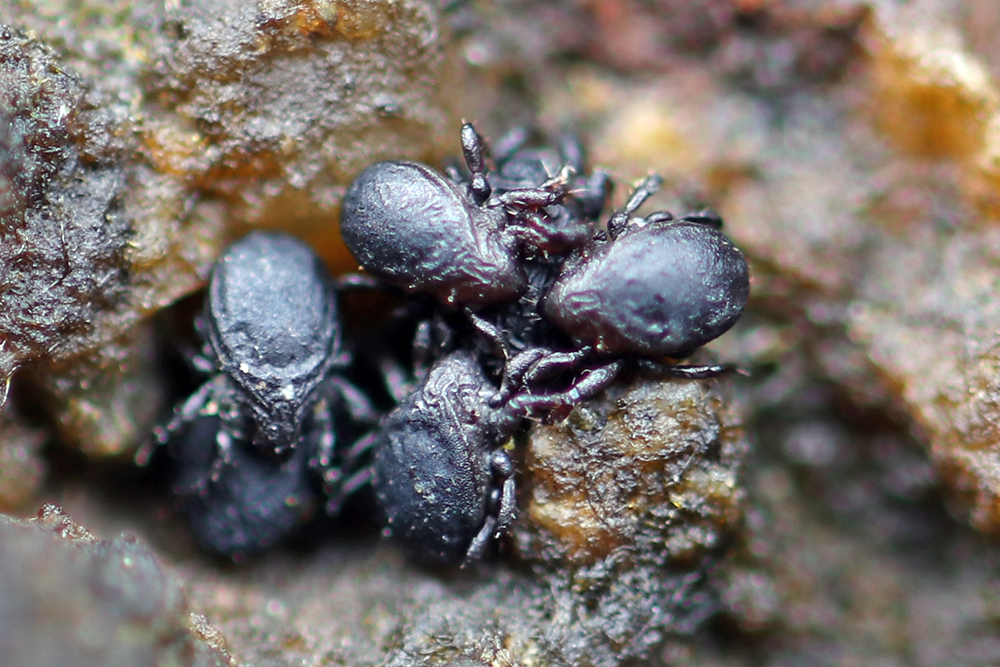Dem sozialen Medium Twitter verdankt Tobias Pfingstl, Biologe an der Universität Graz, bereits die zweite Top-Reihung im Weltregister der Meeresarten. Er entschlüsselte die an der Westküste Japans beheimatete Milbe Ameronothrus retweet, die nun – anlässlich des „Taxonomist Appreciation Day“ am 19. März – zu den zehn bemerkenswertesten neuen Meeresarten gekürt wurde.
Dieselbe Auszeichnung erfuhr im vergangenen Jahr Ameronothrus twitter – und just die Veröffentlichung dieses Rankings führte zur Entdeckung der neuen Art. Ein japanischer Hobby-Fotograf postete auf dem Kurznachrichtendienst ein Bild und fragte nach, ob das Tierchen darauf die Twitter-Milbe sei. „In dieser Gegend Japans war die Art nicht bekannt, deswegen wurden wir aufmerksam“, berichtet Pfingstl. Tatsächlich handelte es sich um eine bislang unbekannte Spezies. Nachdem das Spinnentier gewissermaßen eine Antwort auf die erste Entdeckung war, bekam sie den Namen Ameronothrus retweet.
Die Twitter-Milbe wurde 2021 ebenfalls über ein Posting entdeckt. „Soziale Medien leisten immer häufiger einen Beitrag zur Entdeckung neuer Arten. Wenn die breite Öffentlichkeit in die Biodiversitätsforschung mit einbezogen wird, steigert das auch das Bewusstsein für den Artenschutz“, unterstreicht Pfingstl.
